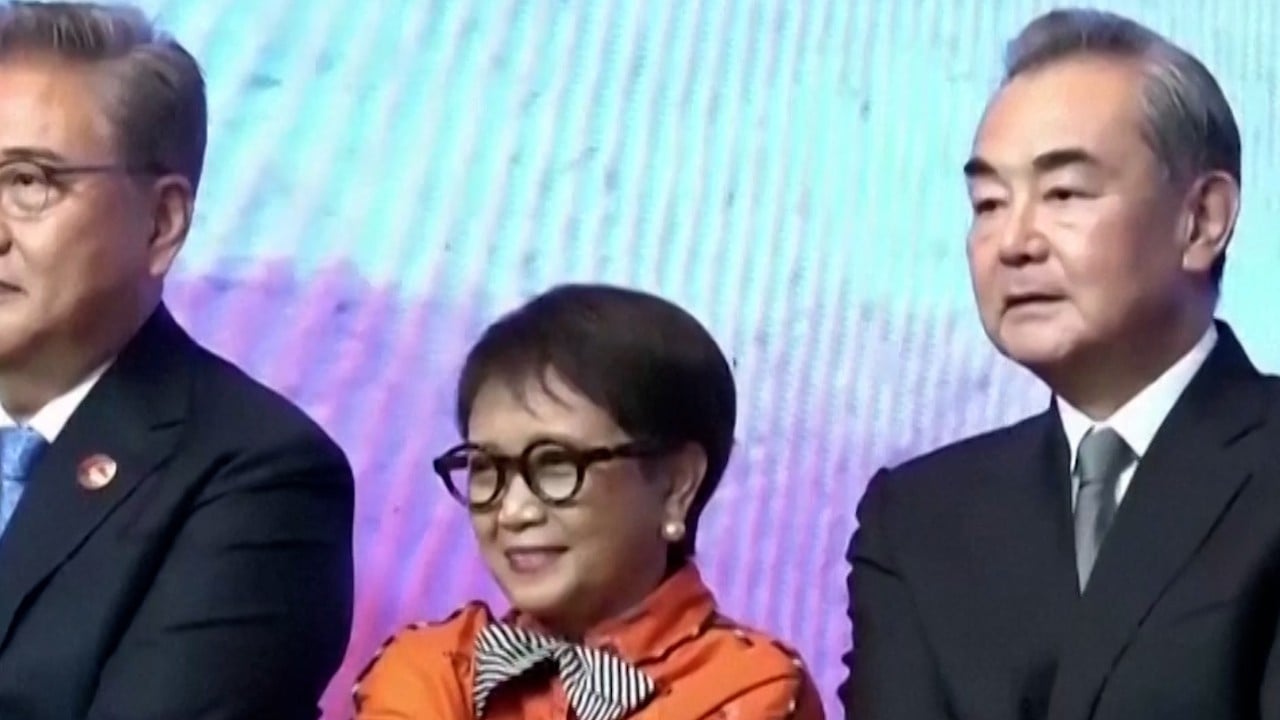
China’s Li Qiang vows ‘practical’ cooperation with Asean in bid to reassure region amid maritime disputes, US pressure
- Chinese premier says Beijing hopes to advance talks on ‘free trade area version 3.0’ while meeting Southeast Asian leaders at business summit
- The comments come amid persistent tensions over South China Sea claims and Washington’s renewed charm offensive in the region
He added that the most important thing for trade and economic cooperation was the trustworthiness of parties and whether the market policies and environment were “fair, stable, transparent and foreseeable”.
“China has always treated counterparts wholeheartedly and with sincerity, and has been especially wholehearted to Asean countries,” he said.
“We are willing to uphold our promises, to develop cooperation in all areas and to carry out practical moves on items of cooperation that have been agreed on.”
China and the 10 members of Asean have signed up for RCEP, as have Australia, Japan, South Korea and New Zealand.
He also highlighted trade between China and Asean, which he said had grown more than 16-fold in the two decades since the summit was launched.
Li held several meetings with his Southeast Asian counterparts throughout the weekend on the sidelines of the four-day gathering, which ends on Tuesday.
In his meeting with his Vietnamese counterpart Pham Minh Chinh, Li said China hoped to “manage disputes” with Vietnam through communication and was determined to “defend righteousness and justice” with Hanoi.
A Chinese foreign ministry statement quoted Chinh as saying that the Vietnam-China comprehensive strategic partnership was his country’s most valued external relationship.
Deepening those relations was Vietnam’s “objective need, top priority and strategic choice”, he said.
Their meeting came after US President Joe Biden made his first state visit to Vietnam last week, upgrading bilateral relations to a “comprehensive strategic partnership”.
The move put the US on the same status as China and Russia in Vietnam’s diplomatic hierarchy.
Beijing responded to their meeting by calling on Washington to discard its “hegemonic and cold war mentality” in the region.
Li also held talks with Laotian Prime Minister Sonexay Siphandone, promising to give support to Laos as the host country of the Asean summit next year.
In discussions with Indonesian Vice-president Ma’ruf Amin, Li called for the two countries to work together to “defend the correct direction for cooperation” in the region.
Cambodian Prime Minister Hun Manet, Malaysian Prime Minister Anwar Ibrahim and Thailand’s Deputy Prime Minister and Commerce Minister Phumtham Wechayachai and Asean Secretary General Kao Kim Hourn also attended the opening ceremony.
While China has long been Asean’s biggest trading partner, Asean only become China’s biggest trading partner in 2020 – filling a position long held by the US.
Since 2018, when the trade war broke out between the world’s two biggest economies, changes in the supply chain have seen Beijing step up trade with its neighbours as manufacturers shifted from China to Asean countries.
China-Asean bilateral trade grew from US$641.5 billion in 2019 to US$975.3 billion in 2022, China’s numbers showed. But the US remained the largest source of foreign direct investment in Asean countries, according to the bloc.
China claims almost all of the South China Sea, and its growing assertiveness about its vast maritime claims has led to confrontations between the Chinese coastguard and vessels from Southeast Asian countries that also claim territory in the disputed waters, particularly the Philippines, Vietnam and Malaysia.
China has pushed for a South China Sea code of conduct with the 10-member bloc, but there has been scant progress.


